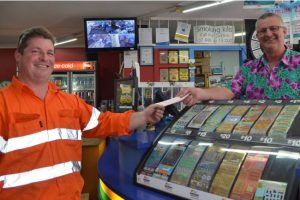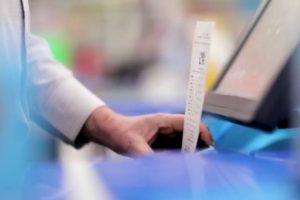 Australia’s furious attack against the “synthetic lotteries” continues. Tasmanian Government is set to restrict betting on the outcome of state-run lotteries. Online lottery operators headed by Lottoland are accused of cannibalizing the national lotteries by hitting their profitability. This resulted in a great opposition by legislators from the different states, Australian traditional lotteries’ operators, and local newsagents, who sell lottery tickets. One by one, all the Australian states put these offshore “synthetic lotteries” in a tight corner. It appears that it is only a matter of time before these are forced to depart from the Australian market without the option to ever come back.
Australia’s furious attack against the “synthetic lotteries” continues. Tasmanian Government is set to restrict betting on the outcome of state-run lotteries. Online lottery operators headed by Lottoland are accused of cannibalizing the national lotteries by hitting their profitability. This resulted in a great opposition by legislators from the different states, Australian traditional lotteries’ operators, and local newsagents, who sell lottery tickets. One by one, all the Australian states put these offshore “synthetic lotteries” in a tight corner. It appears that it is only a matter of time before these are forced to depart from the Australian market without the option to ever come back.
Local newsagents, who sell lottery tickets admired the Tasmanian Government’s decision to impose restrictions on the operations of so-called synthetic lotteries. Generally speaking, these lotteries allow players to place bets on the outcome of the traditional lotteries without the need to buy lottery tickets. Australia’s main target was Lottoloand, which follows the aforementioned business model. This triggered a wave of massive discontent among the local newsagents, lawmakers and traditional lotteries’ operators. They explained that these online lotteries are to be blamed for the traditional lotteries’ plummet.
Australia’s Stance on the Matter
 At present Victoria, Western Australia, and Queensland are willing to banish these “synthetic lotteries”, while South Australia has already implemented a law to ban the existence of the culprits. Earlier this morning, Parliamentary Secretary for Small Business Roger Jaensch approved that the lawmakers are working on a draft bill that would prohibit the provision of such online betting options within the state’s borders.
At present Victoria, Western Australia, and Queensland are willing to banish these “synthetic lotteries”, while South Australia has already implemented a law to ban the existence of the culprits. Earlier this morning, Parliamentary Secretary for Small Business Roger Jaensch approved that the lawmakers are working on a draft bill that would prohibit the provision of such online betting options within the state’s borders.
The announcement is manna for the operators of traditional lotteries and the newsagent kiosks, which are authorized to sell also lottery tickets. Australian Lottery and Newsagents Association Tasmanian General Manager Ben Kearney commented that the presence of such “synthetic lotteries” is more than disturbing, as these “steal” the customers from the traditional lotteries. Here it is important to mention that companies such as Lottoland are not paying taxes to all the Australian states, in which they operate, but only to the state, which issued them the license.
In Lottoland’s case, the state, which secured the company’s license to operate in the Australian gambling market is the Northern Territory (NT). Hence, Lottoland contributes to the economic growth of the particular state, even though it is targeting players from all corners of Australia. The traditional lotteries, on the other hand, are paying their fair share to the government. According to various financial reports, Tasmania collected $30.6 million state lottery taxes in 2016-2017. In an interview, Australian Lottery and Newsagents’ Association (ALNA) CEO Adam Joy announced that the country will not allow being robbed by offshore operators.











